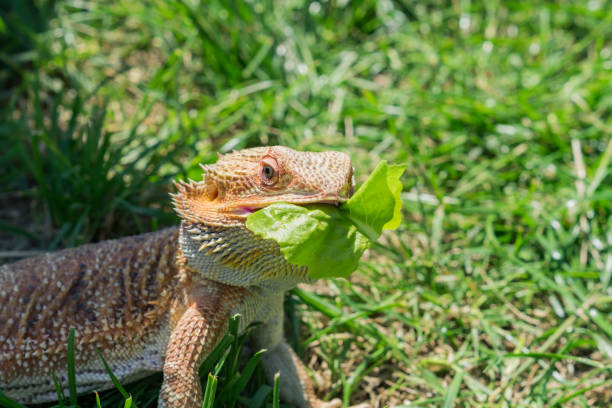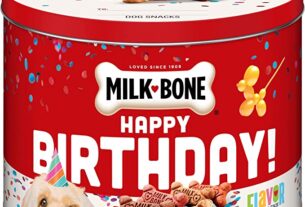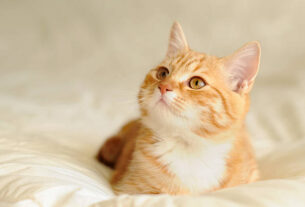A balanced diet is very important for the Bearded Dragons diet, can bearded dragons eat Strawberries? Can bearded dragons eat cucumbers? These are the questions that many people who want to raise these amazing reptiles frequently ask. It is crucial to comprehend the dietary needs of dragons to maintain their health and energy. With their enormous presence and flaming breath, dragons—magnificent beings from myth and legend—captivate our thoughts. Frequently, the enigmas surrounding these magnificent creatures also encompass their food requirements. Let’s learn more about Dragon Nutrition in this blog.
Page Contents
Can Bearded Dragons Eat Strawberries?
A bearded dragon’s diet can include strawberries, but only in small amounts. Although these fruits are rich in vitamins and antioxidants, their high sugar content makes them unsuitable for regular food. Strawberries may offer extra nutrients and diversity to their diet when included as a treat once in a while, but overindulgence should be avoided.
Exploring the Cucumber Conundrum
Can Bearded dragons eat cucumbers since they provide them with certain nutrients and fluids. However, moderation in eating is required due to their high-water content and relatively poor nutritional value. When cucumbers are incorporated into their diet in moderation, the nutritional balance is maintained while they reap the benefits of increased hydration.
Understanding a Dragon’s Digestion: Dietary Insights
Similar to bearded dragons, dragons have a special digestive system designed for their omnivorous diet. Because of their very tiny digestive system, they require nutrients that are readily digested. Strawberries have a high sugar content, thus moderation is required, even if they can be included sometimes because of their antioxidant value. Because of their high-water content, cucumbers are a good addition sometimes but don’t provide much in the way of nutrition. Gut-loaded insects and nutrient-dense leafy greens should be prioritized to guarantee optimal digestion and nutrition absorption. Ensuring maximum health for these fascinating creatures requires balancing their food with a variety of nutritional alternatives.
Crafting a Balanced Diet for Dragons
1. Insects High in Protein: Mealworms, Dubia roaches, and crickets are a few examples of insects that provide a great source of protein. These insects are much more valuable for your dragon’s diet when they are gut-loaded with healthy greens, especially if your dragon is younger and needs more protein.
2. Vegetables High in Nutrients: Leafy greens, including bok choy, turnip greens, and mustard greens, are a good source of vitamins and minerals. Adding a range of veggies to their meals, such as carrots, bell peppers, and squash, enhances their nutritional diversity.
3. Occasionally Fruits: Dragons may also eat blueberries, raspberries, mangoes, papayas, and other fruits in addition to strawberries. Because of their high sugar content, they should only be used for special occasions and not as a main source of nutrition.
Supplements and Hydration
Ø Supplementation with Calcium and Vitamins: Dusting insects and vegetables with calcium supplements is advised to assist bone formation and general health. Furthermore, supplying a multivitamin pill aids in bridging any possible dietary deficiencies.
Ø Hydration Requirements: Fruits and vegetables help you stay hydrated, but you should always have a shallow dish of clean water on hand. Changing the water regularly guarantees cleanliness and inhibits the formation of microorganisms.
The Importance of Calcium: Vital for Strong Bones
Olivia Eva said, For a bearded dragon to remain healthy, calcium is essential. This is especially true for strong bone structure and the prevention of metabolic bone disease (MBD). MBD can result from a low calcium diet, which can weaken and distort bones. So, it’s essential to make sure you’re getting enough calcium supplements in addition to eating a balanced diet. It becomes essential, especially for developing dragons, to dust their diet with calcium powder or to provide calcium-rich food sources such as dark leafy greens and calcium-rich insects. This mineral is essential to the general health of these fascinating animals since it supports several physiological processes in addition to helping with skeletal growth.
Feeding Frequency and Age Considerations
The dragon’s age determines how often it eats. Adult dragons may survive on a meal provided every other day, supplemented with vegetables and sometimes fruits, while juvenile dragons may need daily feedings, mostly consisting of insects.
FAQs
Do Bearded Dragons Require UVB Lighting?
Indeed, bearded dragons require UVB illumination to help them synthesize vitamin D3, which is necessary for calcium absorption. For the sake of their general health and bone health, appropriate UVB exposure is required. Make sure they can spend a good chunk of the day under UVB lighting, which simulates natural sunshine exposure.
How Do I Prevent Obesity in Bearded Dragons?
If bearded dragons are overfed or given high-fat diets, obesity may become an issue. Keep an eye on their food to make sure they’re getting the proper number of veggies, fruits, and insects to prevent obesity. To keep kids active and healthy, limit their sweets and stick to a well-balanced diet. Frequent physical activity such as climbing and exploring their cage contributes to the prevention of obesity.
Can Bearded Dragons Eat Lettuce?
Although lettuce is safe in moderation, bearded dragons don’t benefit much from it nutritionally. Because of its high-water content and low nutritional value, it shouldn’t be a regular part of their diet. To get your fill of vital vitamins and minerals, choose for nutrient-dense leafy greens like mustard, dandelion, or collard greens.
Also Read=5 Best Milk-Bone Flavor Snacks Ingredient
Conclusion
It’s critical to comprehend bearded dragon nutrition requirements for both longevity and good health. They can include cucumbers and strawberries in their diet, but diversity and moderation are key. Building a well-rounded diet with insects, veggies, leafy greens, and sometimes fruits guarantees that these amazing animals get the nourishment they need to thrive in captivity. Seeking advice from a skilled breeder or a reptile veterinarian can provide customized recommendations to address the unique dietary requirements of your dragon.

Lois Lane is a professional blogger and a seasoned Content writer for wellhousekeeping.com. With a passion for simplifying complex Home Decor topics, he provides valuable insights to a diverse online audience. With four years of experience, Lois has polished his skills as a professional blogger.




